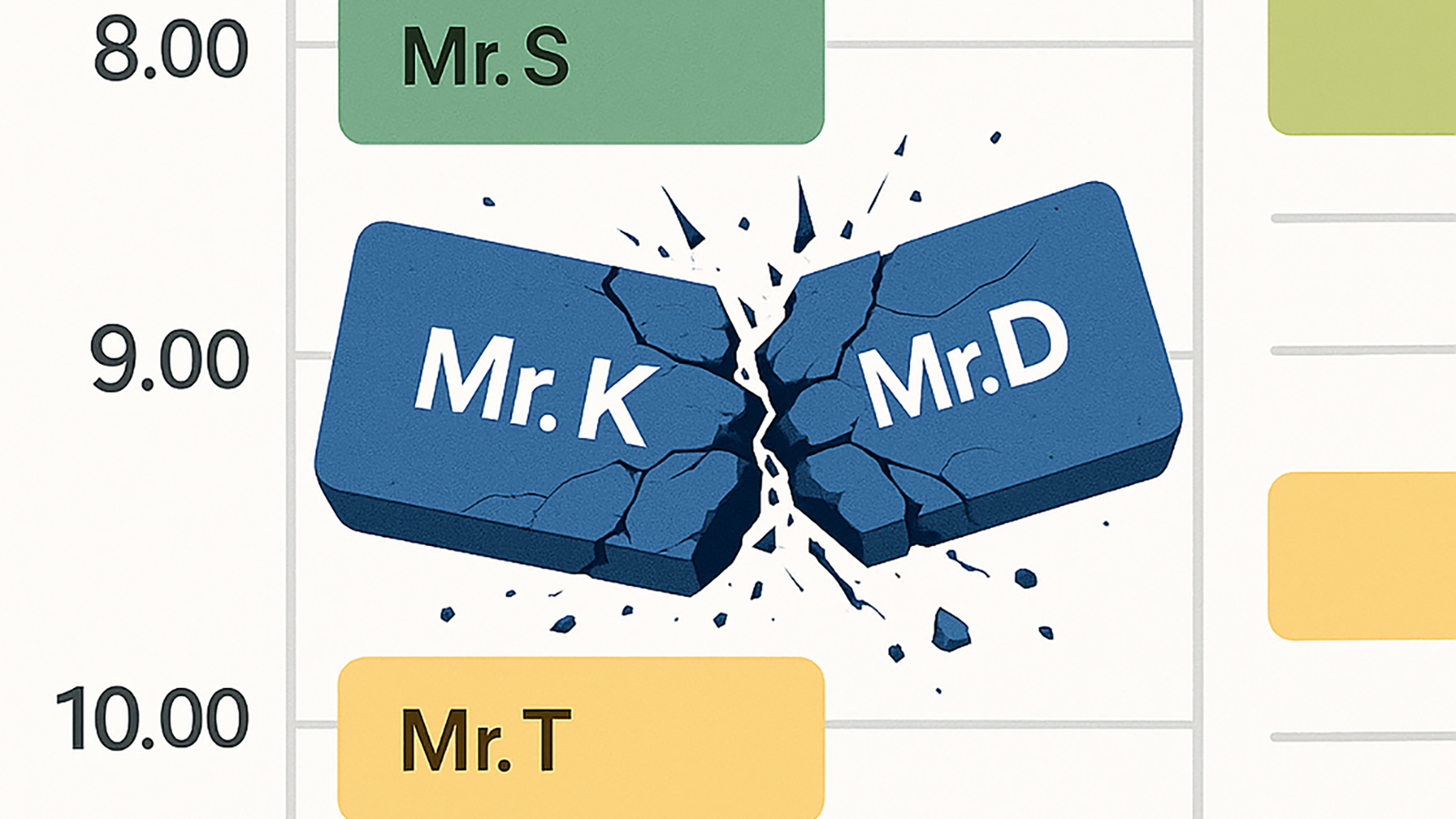It was a Monday morning at the VA audiology clinic. Mr. K came in for his hearing test. It takes 60 minutes. He’d probably waited weeks for this appointment.
He checked in at the front desk. He sat down in the waiting room. He picked up a magazine.
That’s when I saw it.
Two appointments. Same time. Both 60 minutes. Both patients already here.
My stomach dropped.
This was my fault. I made a mistake while scheduling. I was on the phone, entering appointments into the computer. Somehow I double-booked the time slot.
The computer didn’t catch it. The reminder calls didn’t catch it. Nobody knew until Mr. K was already sitting in our waiting room.
The Scramble
I ran to get the audiologists and our clinic manager. Nobody yelled at me. They just started fixing it.
Our clinic manager was amazing at solving problems like this. In just a few minutes, she reorganized the whole morning. One audiologist made a different appointment shorter. Another moved a less urgent appointment to next week. They worked together perfectly.
Mr. K got called back on time. He got his full hearing test. He never knew anything went wrong.
But I knew.
How It Felt
I felt terrible. Not just about my mistake. I felt bad about what I caused for my coworkers.
My friends had to scramble. Their carefully planned day turned into chaos. Every appointment after this would be rushed or shifted. It would affect every patient who came in that day.
Here’s what bothered me most: This should have been impossible.
A good system would have stopped me from booking two people at the same time. It would have warned me right away. But our manual system didn’t catch mistakes. Human error was always possible.
My Solution
After that day, I created my own checking system.
Every Tuesday morning, I spent an hour looking at next week’s schedule. I checked for conflicts. I looked for old appointments that should have been deleted. Then every morning before we opened, I checked one more time.
It worked. I caught problems before they became disasters. I found appointments that were never removed. I stopped crises before they happened.
My boss loved this. It showed I cared. It solved problems.
But here’s the thing: I was doing an extra hour of work every week because the system couldn’t do it.
When I left that job, I don’t know if the next person knew to do this. How could they? It wasn’t written down anywhere. It was just something I learned after that Monday with Mr. K.
This Happens in Home Care Too
If you run a home care agency, you know this story.
Just change a few details:
Mr. K waiting for his 9am caregiver who was accidentally scheduled at a different client’s home. Your schedulers scrambling to find coverage while his family calls in a panic because he can’t get out of bed.
My Tuesday morning audit becomes whatever heroic system your operations manager created to catch mistakes. The spreadsheets they check on their own time because your software can’t find its own errors.
The crisis. The scramble. The guilt. The fix that doesn’t last. The knowledge that leaves when someone quits.
It’s the same story. Just a different place.
The Real Problem
Manual scheduling in healthcare doesn’t just slow things down. It’s broken. It only works because good people work extra hard to prevent disasters.
Mr. K got lucky that day. He had a team that fixed my mistake. But how many people aren’t so lucky? How many clients miss care because the fix didn’t work? How many families stop trusting you because something went wrong?
And how long can we ask healthcare workers to create their own fixes for problems that shouldn’t exist?
What I Learned
That Tuesday changed how I think about healthcare work. It taught me that good people in broken systems will always find ways to cope. But coping isn’t fixing.
The audiologists were heroes that day. So are your schedulers. So are your caregivers. Every time they fix a scheduling problem that should never have happened.
But heroes shouldn’t have to save people from problems we can prevent.
What Changed for Me
At Neurvana, we create scheduling solutions for home care agencies. We do this because I lived in the chaos. I know what it feels like to find a mistake too late. I know the guilt of creating extra work for people I care about. I know how exhausting it is to create fixes that should be built into the system.
Your team deserves better than having to be heroes. Your clients deserve better than near-misses. And you deserve to know the system will catch mistakes before they become problems.
Because right now, somewhere, a scheduler is staring at their screen. They see two names in one time slot. Their stomach is dropping. They’re wondering how to fix this before anyone notices.
I remember that feeling. And I’m creating the system I wish I had.

